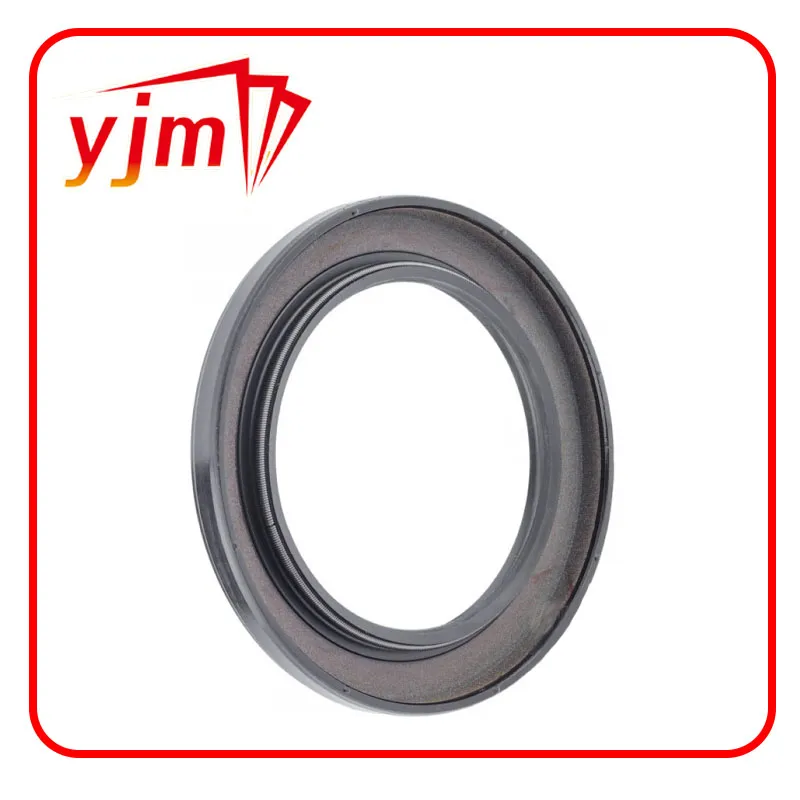Axle Tube Sealing Solutions for Enhanced Performance and Longevity
Understanding Axle Tube Seals Importance and Maintenance
Axle tube seals, also known as axle seals or differential seals, play a crucial role in maintaining the integrity and performance of a vehicle's drivetrain. These seals are designed to prevent gear oil from leaking out of the axle housing, which is essential for the proper functioning of the differential and the overall system. In this article, we will explore what axle tube seals are, their importance, common issues that arise, and maintenance tips to ensure they function effectively.
What are Axle Tube Seals?
Axle tube seals are typically made of rubber or polymer materials and are positioned at the ends of the axle tubes, where the axle shafts connect to the differential. Their primary function is to keep the lubricating oil contained within the axle housing, preventing it from leaking into the wheel housing or onto the braking components. Effective seals ensure that the differential operates correctly, allowing for smooth and efficient power transfer from the transmission to the wheels.
Importance of Axle Tube Seals
The significance of axle tube seals cannot be overstated. A malfunctioning seal can lead to oil leaks, which in turn can result in severe mechanical issues. Here are some key reasons why these seals are critical
1. Lubrication The differential relies on gear oil to lubricate its components. Insufficient lubrication can lead to increased wear and eventually catastrophic failure of the differential gears.
2. Contamination Prevention Axle tube seals help keep dust, dirt, and moisture out of the axle housing. Contaminants can degrade the oil’s effectiveness, increasing friction and wear in the drivetrain.
3. Vehicle Performance Properly functioning axle seals contribute to the overall performance and efficiency of a vehicle. Leaking oil can affect traction and handling, especially during turns and under load.
4. Cost-Efficiency Preventing leaks can save vehicle owners significant amounts in repairs. Addressing issues early by replacing faulty seals can avoid more costly differential repairs down the line.
Common Issues with Axle Tube Seals
Several common problems associated with axle tube seals may arise over time
- Wear and Tear Axle seals can degrade due to exposure to heat, chemicals, and wear from friction. When the rubber or polymer material becomes brittle or cracked, it can cause leaks.
axle tube seal

- Installation Errors Improper installation of axle seals can lead to misalignment, which compromises their ability to seal effectively. This can result in premature failure.
- Axle Shaft Movement Excessive movement or play in the axle shafts can put strain on the seals, leading to failure over time
.- Differential Damage If the differential is damaged or worn, it can cause excess pressure on the seals, leading to leaks.
Maintenance Tips for Axle Tube Seals
To ensure that your axle tube seals remain in good condition, consider the following maintenance tips
1. Regular Inspections Check the axle seals during routine maintenance checks. Look for signs of oil leaks around the wheels or any moisture that may indicate a failing seal.
2. Fluid Level Checks Keep an eye on the differential oil levels. A significant drop may suggest a leak, prompting a closer inspection of the seals.
3. Proper Installation If you are replacing axle tube seals, ensure they are installed correctly. Follow manufacturer guidelines or seek professional assistance.
4. Avoid Overloading Ensure that your vehicle isn’t overloaded, as excessive weight can stress the axle and its components, including the seals.
5. Use Quality Parts When replacing seals, use high-quality components that meet or exceed OEM specifications to ensure longevity and reliability.
Conclusion
In summary, axle tube seals are a vital component of a vehicle's drivetrain system. They prevent oil leaks, keep contaminants out, and contribute to the vehicle's overall performance. Regular inspection and maintenance of these seals can help prevent costly repairs and ensure a smooth driving experience. By understanding their importance and taking proactive steps, vehicle owners can enhance the longevity and functionality of their drivetrains.
-
Simplifying Oil Changes: A Comprehensive Guide to Oil Drain Plugs and Their Variants
News Aug.04,2025
-
Mastering Oil Drain Maintenance: Solutions for Stripped, Worn, and Upgraded Oil Plugs
News Aug.04,2025
-
Fixing Oil Pan Plug Issues: Leaks, Stripped Nuts, and the Right Replacement Solutions
News Aug.04,2025
-
Everything You Need to Know About Oil Drain Plugs: Sizes, Fixes, and Upgrades
News Aug.04,2025
-
Choosing the Right Oil Drain Plug: A Guide to Sizes, Materials, and Drain Innovations
News Aug.04,2025
-
A Complete Guide to Automotive Drain Plugs: Types, Problems, and Innovative Solutions
News Aug.04,2025
-
The Ultimate Guide to Car Repair Kits: Tools and Essentials Every Driver Should Own
News Aug.01,2025
Products categories















